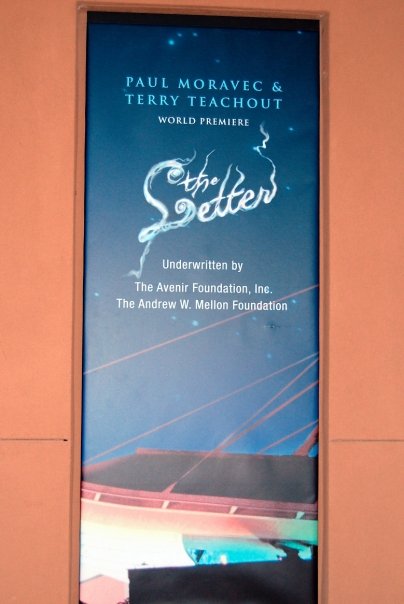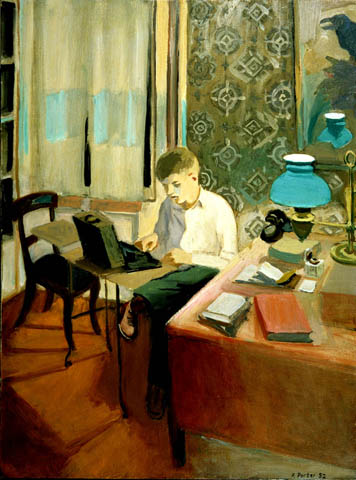Patrick Kurp’s thoughtful response to the list of ten American novels that I posted the other day contained this observation:
Some of the satisfactions I once found in fiction–human drama, moral complexity, memorable language–I now find more reliably elsewhere, in poetry, history and biography. One of good fiction’s chief virtues, the way it encourages self-forgetting as we inhabit the lives of others, is often better accomplished in other forms.
I’m not sure that I’d say often, but I do know that I spend more time reading history and biography than fiction, and I don’t know why. I truly love the novels on my list, and many more as well, but all things being equal, I’m somewhat more likely to be reading non-fiction than fiction at any given moment. This has always been so. I tend to read fiction in spurts–I recently spent a whole week revisiting the novels of William Maxwell–whereas there is rarely a time when I’m not either reading, consulting, or writing about a non-fiction book.
 This doubtless has much to do with the nature of my work, and it may also have something to do with the fact that I don’t write fiction. On the other hand, I’ve written three plays and two opera libretti in the past two years, a development without precedent in my writing life and one that puzzles me greatly. I simply don’t understand how or why I have suddenly found within myself the desire and ability to write for the stage. As I recently told a friend, it feels as though I’ve grown another arm.
This doubtless has much to do with the nature of my work, and it may also have something to do with the fact that I don’t write fiction. On the other hand, I’ve written three plays and two opera libretti in the past two years, a development without precedent in my writing life and one that puzzles me greatly. I simply don’t understand how or why I have suddenly found within myself the desire and ability to write for the stage. As I recently told a friend, it feels as though I’ve grown another arm.
It will be interesting to see whether this belated change of life causes me to spend more time reading novels. (I already spend quite enough time reading and watching plays!) Perhaps, consciously or not, I’ve developed in middle age a greater need for what fiction alone has to offer. Or maybe it’s just a manifestation of one of the mysterious cycles of life to which all of us are subject. Eight years ago I noticed with like puzzlement that I seemed to be less interested in music: “It’s as if I’ve become alienated from myself, in much the same way that the victim of a stroke might feel he was no longer himself. I’m not all here.”
Needless to say, the I to whom I referred in that posting came back, if not so decisively as I expected: I spend noticeably less time listening to music now than I did a decade ago, though I don’t think that I love it any less. The sad and inescapable truth is that there are only so many hours in the day, and you can only spend them doing one thing at a time. (Playing music while doing something else is not the same thing as listening to it.)
 It is also inescapably true that there are only so many hours in a lifetime, and at fifty-six, I’m intensely aware of wanting to use the ones that I have left to me as well as possible. I long to spend less time spinning my wheels and more time “making everything more beautiful.”
It is also inescapably true that there are only so many hours in a lifetime, and at fifty-six, I’m intensely aware of wanting to use the ones that I have left to me as well as possible. I long to spend less time spinning my wheels and more time “making everything more beautiful.”
That last phrase, which is a favorite of mine, comes from an essay by Fairfield Porter: “When I paint, I think that what would satisfy me is to express what Bonnard said Renoir told him: make everything more beautiful.” In the past I believed that the only way I could accomplish that goal was by being a good critic and a loving friend and companion. Now it appears that it could also be within my power to accomplish it by being a good playwright and librettist. May it be so!
